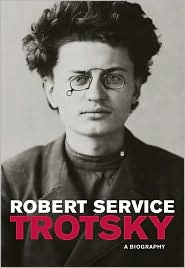history
Paul Le Blanc: Marxism and organisation
By Paul Le Blanc
Review: `The Muslim revolt: A journey through political Islam'

By
June 25, 2011 -- http://rupensavoulian.wordpress.com, posted at Links International Journal of Socialist Renewal with permission -- Since the September 11, 2001, twin tower attacks, there has been renewed interest in the questions of Islam, political Islamism and jihadism. Books have been published by the truckload, seminars bringing together various political scientists and experts have been held, reams of paper analysing the origins and trajectory of political Islam have been published, and the airwaves resonate with talkback from pundits about the impact of Islam and Islamism in the world. How can one make sense of all this? Where does one begin?
The Communist Women’s International (1921-26)

"Emancipated woman -- build up socialism." Poster by Strakhov-Braslavskij A. I., 1926.
By John Riddell
June 12, 2011 -- The following working paper was presented to the Toronto conference of Historical Materialism on May 16, 2010. It first appeared on John Riddell's blog and is posted at Links International Journal of Socialist Renewal with the author's permission.
* * *
When we celebrate International Women’s Day, we often refer to its origins in US labour struggles early last century. Less often mentioned, however, how it was relaunched and popularised in the 1920s by the Communist Women’s International. Moreover, this movement itself has been almost forgotten, as have most of its central leaders.
The Communist Women’s International was founded by a world gathering of communist women in 1921, which elected a leadership, the International Women’s Secretariat, reporting to the executive of the Communist International, or Comintern. It also initiated the formation of women’s commissions in national parties, which coordinated work by women’s bodies on a branch level, and called periodic international conferences of Communist women.
By Norm Dixon
A history of oppression: the Tamils of Sri Lanka

By Danielle Sabai
June 2, 2011 -- Asia Left Observer, posted at Links International Journal of Socialist Renewal with permission -- In February 2011, the president of Sri Lanka, Mahinda Rajapaksa, celebrated the 63rd anniversary of the island’s independence. In his speech, he stressed the necessity of “protecting the reconstructed nation”, as well as protecting “one of the oldest democracies in Asia”, its unity and its unitary character.
This speech came nearly two years after the end of the war on May 19, 2009, between the Sri Lankan state and the Liberation Tigers of Tamil Eelam (LTTE). The military command of the LTTE was decimated in the last two months of a merciless war that has had led to tens of thousands of deaths since the early 1980s.
John Paul II: patron saint of anti-modernism

Karol Wojtyla (Pope John Paul II) with US President Ronald Reagan.
By Barry Healy
June 7, 2011 – Links International Journal of Socialist Renewal -- As part of its attempts to turn back the clock in the Catholic Church the Vatican drew 1.5 million of the devout to Rome on May 1 for the beatification ceremony of Karol Wojtyla, Pope John Paul II. John Paul II may become the fastest declared saint in history.
The Vatican is also pushing the canonisation of Pius XII, who was pope during World War II.
While attention has been drawn to John Paul II’s woeful record on the issue of sexual abuse within the church little has been said about the reasons for the rush to beatification and sainthood.
Pamphlet: Capitalism and workers’ struggle in China (revised edition)

[For more on China, click HERE.]
By Chris Slee
Preface to the revised edition (2011)
June 6, 2011 – Links International Journal of Socialist Renewal -- There are a number of changes in this edition compared to the first edition (Resistance Books 2010). Most of these changes merely expand on points made in the original, supplying more detail in the text and/or the footnotes. Others take account of new developments in the year since the first edition was published.
The biggest change is in the discussion of the Great Leap Forward, which has been significantly expanded and rewritten. I felt this was necessary for two reasons. First, I wanted to acknowledge that natural disasters as well as mistaken policies played a role in the reappearance of famine in 1959-61. Second, I wanted to explain in more detail what the policy errors were, and why I consider that Mao was largely responsible for them.
* * *
Comparing 1911 and 2011: What's relevant for socialists today?

The German gunboat, Panther, tried to halt French claims to Morocco in 1911.
Spain: The 'indignant’ and the Paris Commune

By Atilio A. Boron
May 24, 2011 – AtilioBoron.com, translated by the tlaxcala-int.org website, via the Bullet -- Perhaps it's one of history's surprises that the popular uprising surging through Spain (and which is beginning to reverberate throughout the rest of Europe) was sparked on the 140th anniversary of the Paris Commune, a heroic moment in which the fundamental demand was also that of democracy. But a democracy conceived as a government by, for, and of the people, and not as a regime serving the interests of patronage and in which the people's interests are inexorably subordinate to the imperative of business profits.
